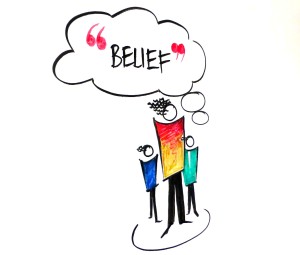 What if you could choose your aging experience? Research is providing exciting evidence that we hold the key to aging well and living longer. There is nothing to go out and buy, because it’s all in your mind. It comes down to what you believe.
What if you could choose your aging experience? Research is providing exciting evidence that we hold the key to aging well and living longer. There is nothing to go out and buy, because it’s all in your mind. It comes down to what you believe.
Your beliefs have a great deal to do with how you age. They can contribute to memory loss, just as they can help keep your memory intact. Your beliefs influence health conditions, functioning, and how your body reacts to toxins.
There was a study in which Japanese children who were highly allergic were exposed to poison ivy but told that it was an ordinary leaf. Believing the authority figure of a scientist, 85% of them had no reaction. Later, the children had a non-toxic leaf rubbed on their arm but were told that it was the dreaded poison ivy. This time, all of the children developed a rash. The cells in their body should have been able to distinguish poison ivy from a benign leaf, but what the children believed overrode their immune system. Their bodies responded according to their beliefs.
Can this happen with adults? Many people have described the placebo surgery experiments conducted by Dr. Bruce Moseley. In one, he recruited 180 patients suffering from knee pain and divided them into three groups. The first group had the full arthroscopic surgical procedure. The second group received half of the treatment. And the third group got an incision, a simulated surgery, and were sewn back up.
Two weeks later, the placebo patients—those who had either an incomplete procedure or no real surgery at all—had less pain. They also showed greater improvement on walking and stair-climbing tests than did the patients who had the complete surgery. A year later, the placebo patients were still doing better than those who underwent the full procedure.
The lesson here is that much of how you heal and age depends on what you believe. Research shows that people who have positive beliefs about aging heal more quickly from injury, delay the onset of chronic conditions, and live longer. John Lilly wrote, “In the province of the mind, what one believes to be true either is true or becomes true.” What will you choose to believe?



